
Tsukuba Medical Laboratory of Education and Research (TMER) in cooperation with the International Federation of Biomedical Laboratory Science (IFBLS) was pleased to offer the TMER Overseas Trainee Project in 2024.
From Canada to Japan: An Interview with 2024 TMER Award Recipient Judy Tran
Can you tell us a little about yourself?
My name is Judy Tran, I’ve been working as a medical laboratory technologist in Hematology within the Core Laboratory at University Health Network (UHN) in Toronto, Canada, for nearly 8 years. I graduated from The Michener Institute of Education at UHN. Throughout my career, I’ve been an active volunteer with the Canadian Society for Medical Laboratory Science (CSMLS), contributing to the advancement of the medical laboratory profession. In 2024, I was honored to be the recipient of the TMER Award, where the focus was on hematology.
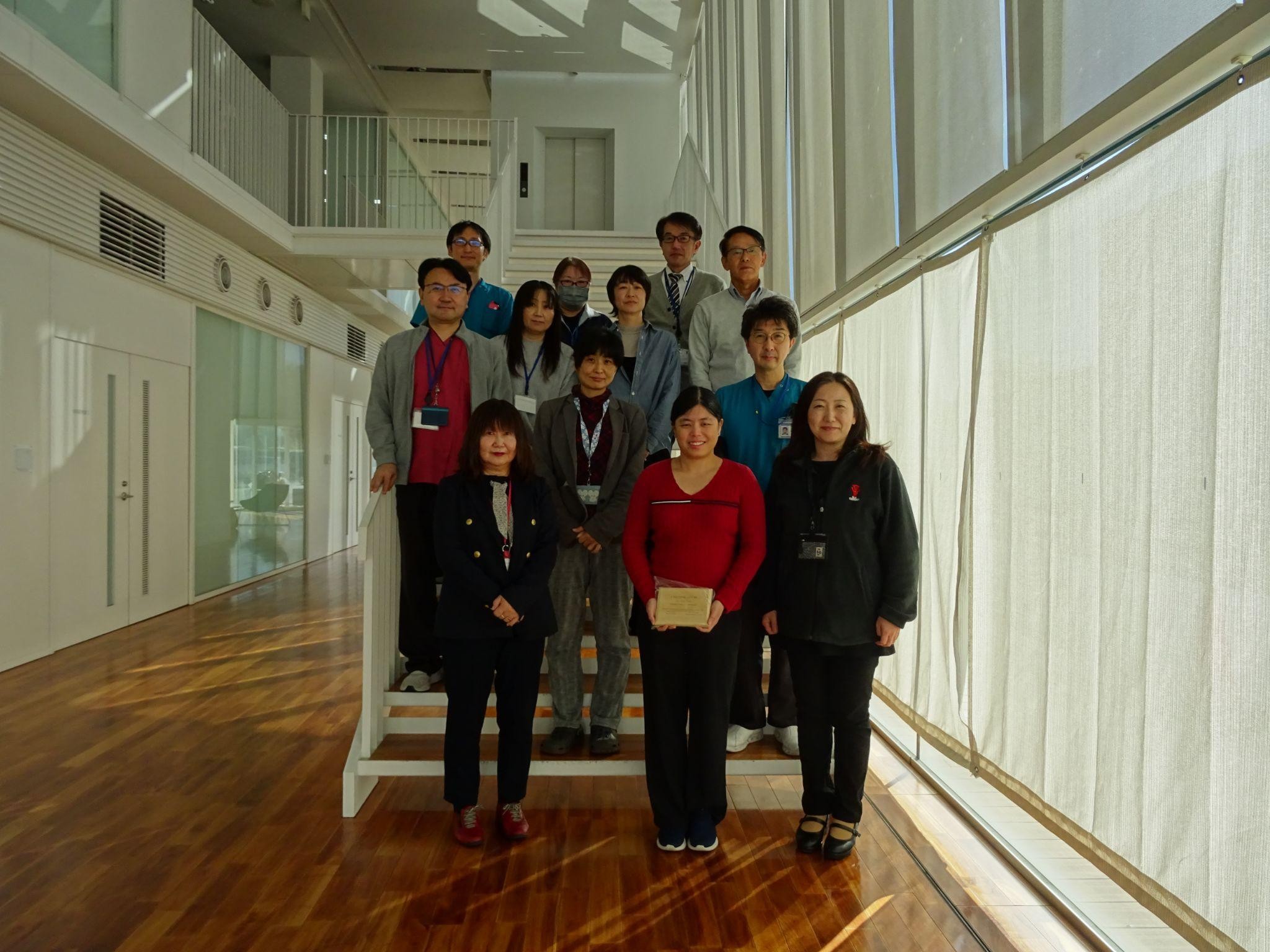
Judy Tran (first row, second from the left) accepts the TMER Award alongside the TMER staff
Congratulations! Can you tell us more about what the TMER Award is?
The TMER Award was established in 2011 and is a one-week training program organized by the Tsukuba Medical Laboratory of Education and Research (TMER) in Tsukuba, Japan. The program supports the education, development, and training of medical scientists and technologists from around the world. The program aims are to enhance the level of medical care in the trainees' home countries, foster mutually beneficial international friendships, and promote the exchange of knowledge. Each year, the program focuses on a different discipline in medical laboratory technology.
The selected trainee for the TMER Award program travels to Tsukuba, Japan. TMER provides financial support for airfare (up to 150,000 JPY) and partial living expenses and arranges the accommodations for trainees during the training period. The program also organizes a welcome dinner upon arrival and a farewell dinner at the end of the training period.
Over the years, TMER has hosted clinical laboratory scientists from various countries to receive training in medical laboratory technology. Trainees have come from countries such as Australia, Malaysia, Taiwan, Ghana, Canada, Sri Lanka, Cameroon, Nigeria, Japan, Greece, the Philippines, Italy, Zambia, and beyond.
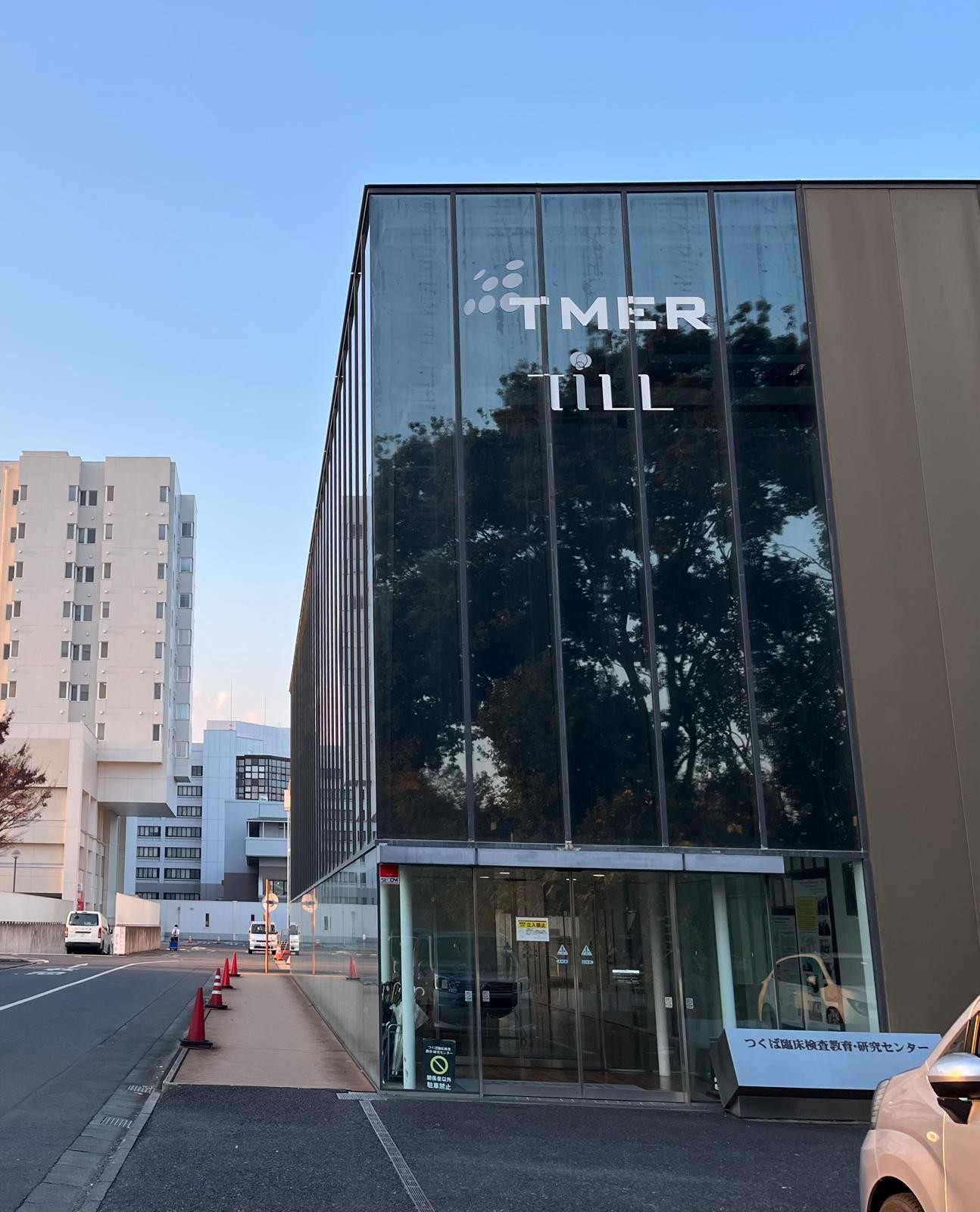
TMER i-Laboratory in Tsukuba, Japan. The Tsukuba Medical Laboratory of Education and Research (TMER)
was established in 2010 through a strategic industry-academia partnership between Tsukuba University Hospital
and LSI Medicine Corporation.
What did the training involve?
The training involved both practical sessions and lectures, and it was very well organized. During the program, I had the opportunity to tour the University of Tsukuba and the University of Tsukuba Hospital. My favourite experience was visiting the Sekisui Medical Co. Ltd factories, where I observed the development of rapid antigen tests for SARS-CoV-2 and RSV, as well as the processes involved in creating, printing, packaging, and labelling reagents for clinical analyzers. I also had the opportunity to observe their quality assurance processes.
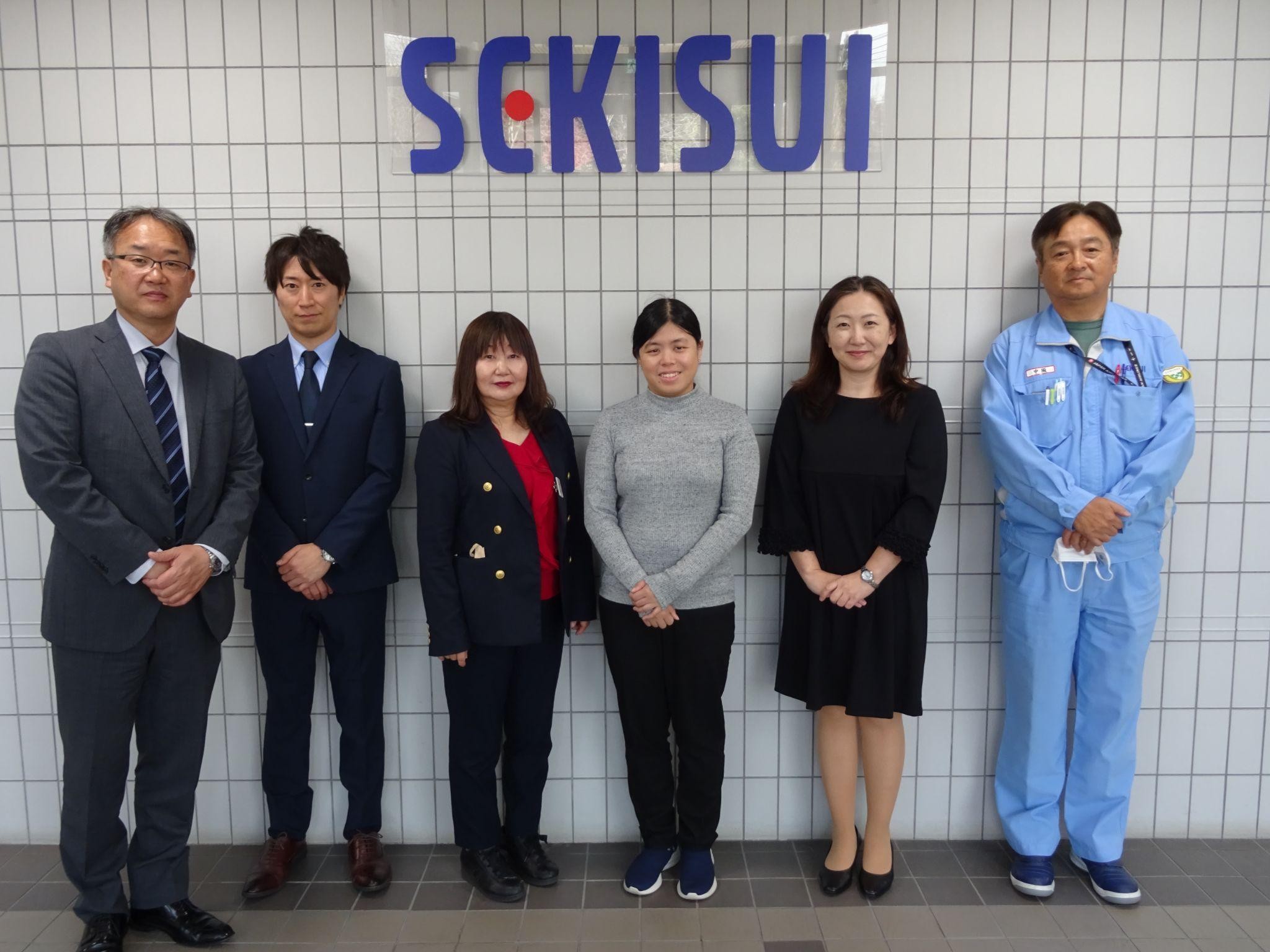
Kyoko Komatsu (third from left) and Judy Tran (fourth from left) with TMER staff and Sekisui Medical Company staff during a visit to their facilities.
One of the lecturers, a renowned biomedical laboratory scientist from The University of Tokyo Hospital, discussed bone marrow specimen preparation and staining. I also reviewed several patient cases, including CBC results, blood films, and corresponding bone marrow slides.
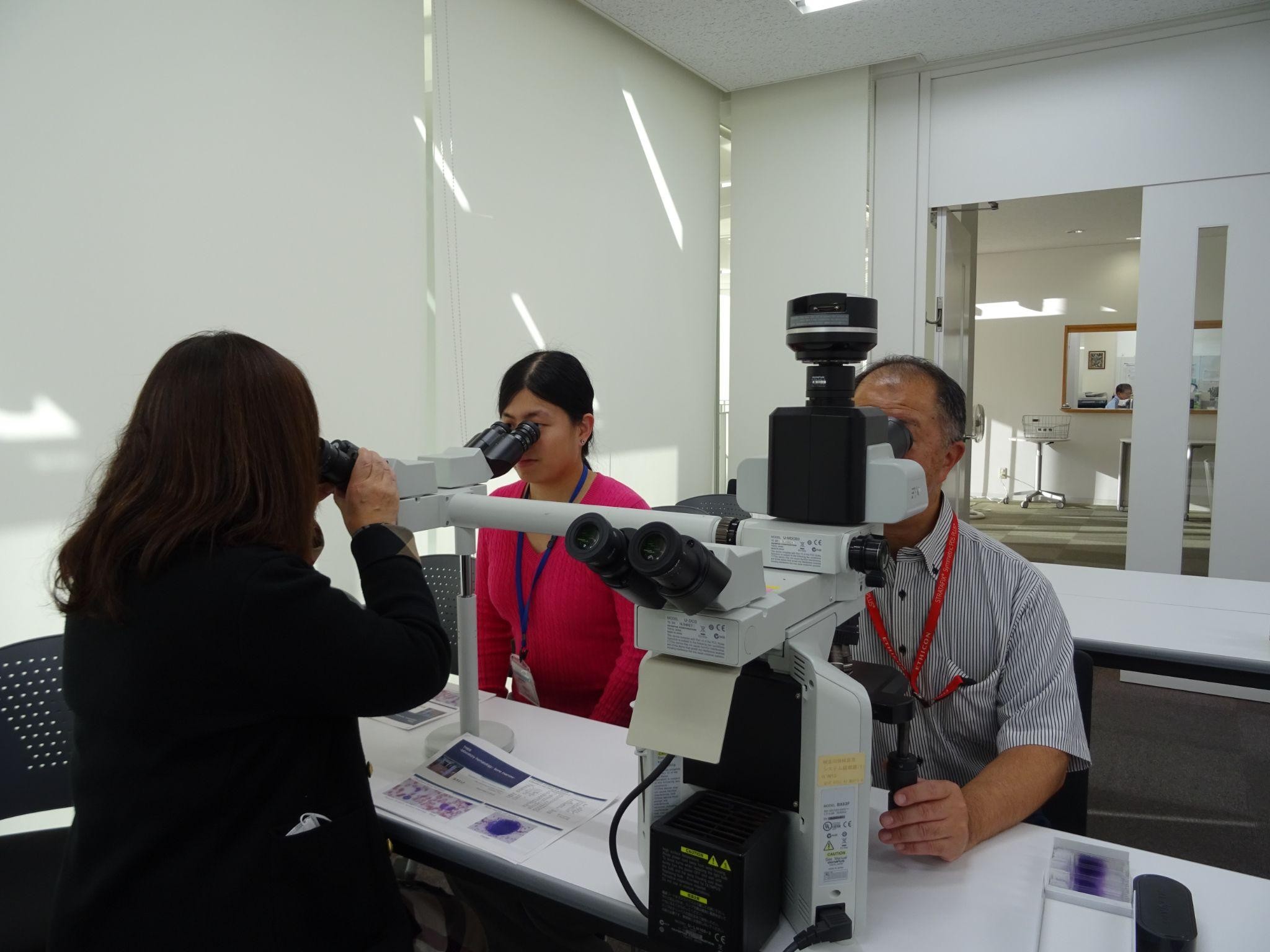
Practical training in hematology
Additionally, I had a lecture on Cancer-on-a-chip and immunotherapy using iPS (induced pluripotent stem) cell technology from Assistant Professor Yuta Mishima from the University of Tsukuba. Additionally, experts from BD Company were brought in to explain the principles of flow cytometry and provide a hands-on demonstration of their FACSLyric instrument.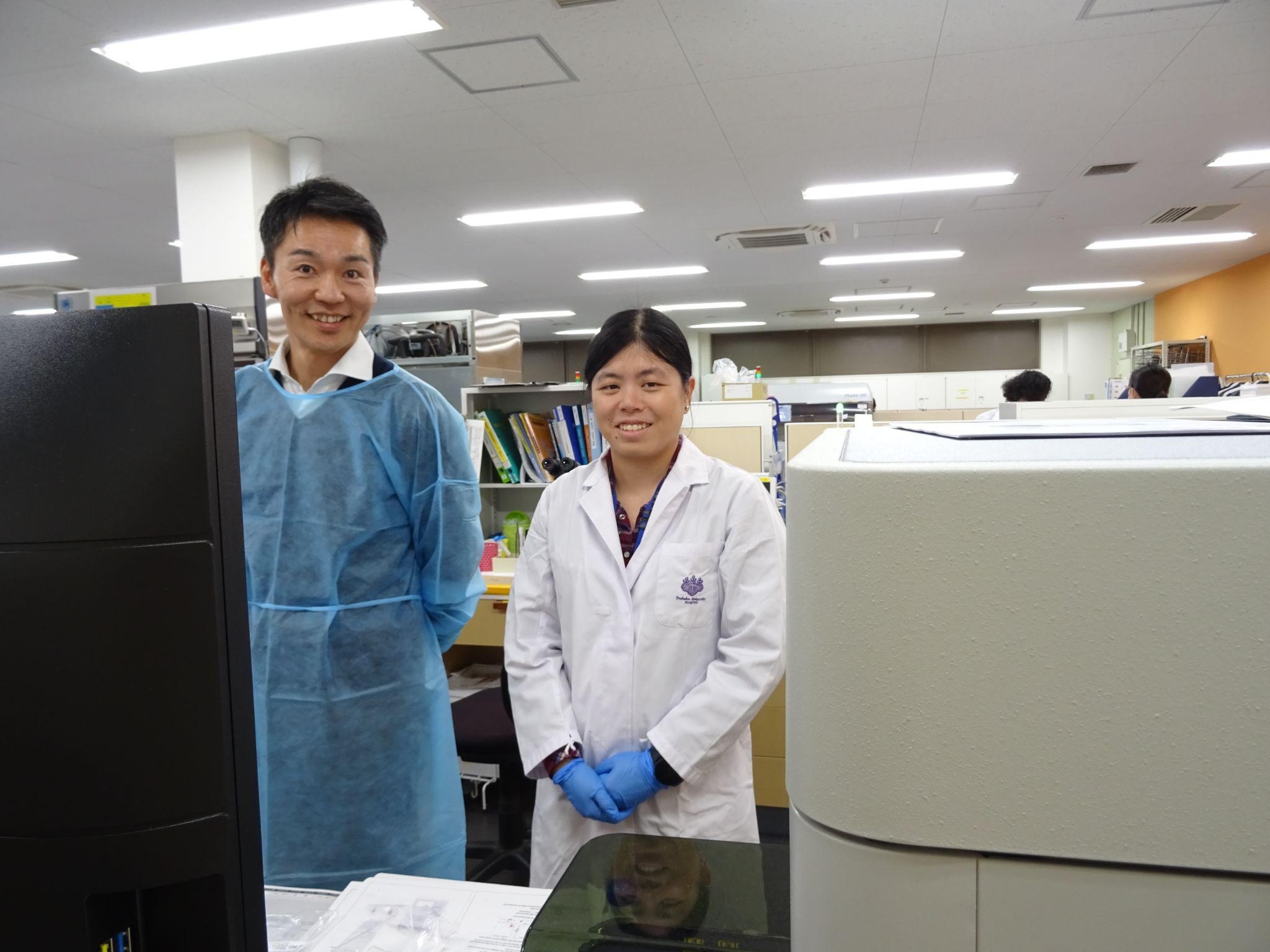
Judy Tran (right) with BD Company staff learning flow cytometry
For the Japanese-speaking lecturers, Ms. Kyoko Komatsu, who organizes the program, kindly provided translation so that I could follow the presentations clearly as the only trainee.
Japan is known for its technological innovation. Were there any advancements that stood out to you during your training experience?
During my training in Tsukuba, several technological innovations stood out to me. Tsukuba is designated as a "Super City" by the Japanese government, a status aimed at driving regional technological advancements and fostering innovation through digitalization. One particularly interesting project involved the use of drones to transport COVID-19 samples between the hospital and the lab, enhancing the speed and efficiency of sample collection and transportation.
Another groundbreaking initiative was the development of a mobile laboratory system utilizing hydrogen fuel cell (HFC) buses. These buses were equipped with automated laboratory systems and electronic reporting capabilities, allowing patients to receive their COVID-19 RT-PCR test results within hours, delivered directly to their email. Additionally, the buses were designed to serve as a power source during natural disasters like earthquakes, providing critical support when traditional infrastructure is compromised. Between April and July 2022, over 4,000 samples were analyzed using this innovative system, showcasing how technology can address both public health needs and emergency preparedness.
What does the TMER application process involve?
To apply for the TMER program, applicants must be an active biomedical laboratory scientist (BLS), a role that may go by different names depending on the country. Applicants are also required to have support in writing from both their employment supervisor and their National Association, which must be a member in good standing with the IFBLS. The application is available online on the IFBLS website.
Applicants must submit a current CV as part of the online application. They are also required to include recommendation letters from their employment supervisor and the President of their National Association. In addition, all applicants must outline a Monitoring Plan describing how they intend to share the knowledge and experience gained through the training with members in their home country.
Share the full interview of Judy's experience.



